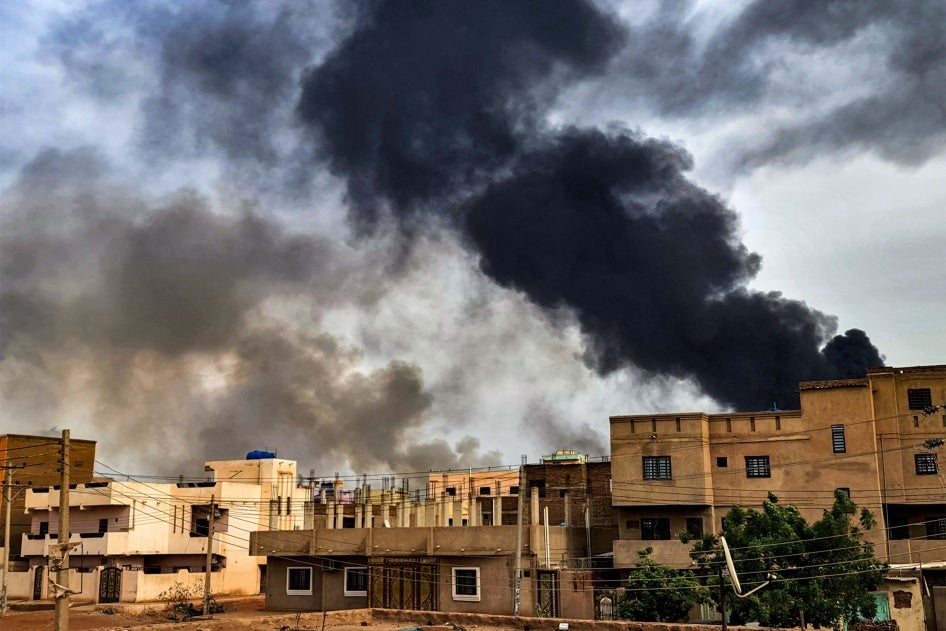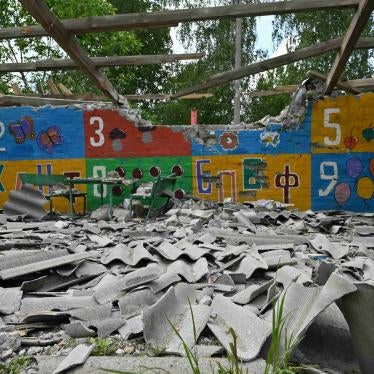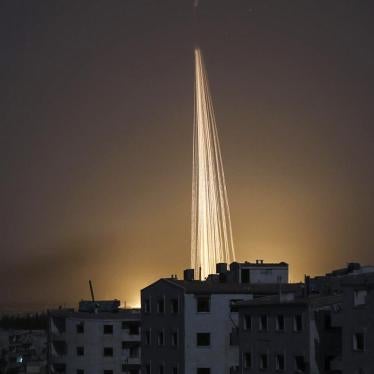On April 15, we awoke to news that war had broken out in Sudan. From our screens, my family, our Sudanese community, and I followed media outlets and WhatsApp groups, hungry for information on what was happening overseas.
We watched from afar as fighting between the Sudanese Armed Forces and the Rapid Support Forces spilled into Khartoum, causing chaos, and transforming the once vibrant and familiar capital into a trail of destruction. We saw videos circulated around social media of frightened passengers cowering on the floor of the Khartoum International Airport as it came under heavy bombardment. We saw doctors wheeling their patients out of Al Shaheeda Salma hospital on stretchers and beds after it was bombed. As we watched the dissolution happening on our screens, we ran to our phones to check up on family and loved ones back home.
Eight months later we are still glued to our phones as Khartoum and other parts of Sudan continue to suffer under the bombardment.
As of December, the fighting had killed more than 12,000 people and displaced 6.7 million, in what the United Nations humanitarian chief Martin Griffiths has called “one of the worst humanitarian nightmares in recent history”.
I have watched in agony as cities have transformed into warzones and my mental image of “home” has crumbled under the barrage of rockets, artillery, and bombs. Like many other Sudanese families, we have had to mourn the deaths of loved ones from an imposed distance, including most recently my grandfather, who had lost access to health care due to the war.
From the onset of the conflict, explosive weapons have destroyed homes, including my own family’s home, entire neighbourhoods, and infrastructure, such as hospitals, schools, and water treatment plants. In early November, the monumental Shambat Bridge connecting Omdurman and Khartoum Bahri was bombed and destroyed. Truces that should have allowed civilians to evacuate cities under bombardment have collapsed or ended too quickly, effectively pinning civilians to their homes in precarious situations due to bombardment.
Explosive weapons encompass a range of surface-fired and air-dropped weapons and other munitions, including aerial bombs, artillery and mortar projectiles, and rockets and missiles. These weapons frequently are too inaccurate, or their blast radius is too large for them to be used in populated areas without causing unlawfully indiscriminate harm.
The situation in Sudan represents just one example of what happens when hostilities occur in cities. We also have Gaza, Syria, and Ukraine where we see the use of explosive weapons make cities unliveable.
In Syria, recent shelling and air raids in Idlib and Aleppo have displaced more than 120,000 people, while in Ukraine, Russian forces’ air raids, rocket attacks and other munitions have hit vital ports and grain facilities and damaged schools and hospitals among other civilian infrastructure.
The Israeli army’s widespread use of explosive weapons has turned Gaza, as the UN Secretary-General Antonio Guterres put it, into a “graveyard for children”. Large parts of once densely populated neighbourhoods have been completely levelled. Palestinian armed groups have also fired thousands of rockets towards Israeli population centres.
Explosive weapons not only kill and injure civilians, but they also cause massive damage to power lines, water supplies and other essential infrastructure. This damage can result in so-called reverberating, or long-lasting, effects that can cause harm for decades to come. Additionally, unexploded remnants of war present a threat to civilians during and after hostilities and prevent the safe return of refugees and displaced people.
While this landscape of despair and ruin may seem inevitable, a product of 21st-century warfare, there is potential for action on a global scale to reduce the use of explosive weapons.
Last year, 83 countries adopted the Political Declaration on the Use of Explosive Weapons in Populated Areas, which for the first time officially recognises the need to address this issue urgently and directly. The declaration commits governments and militaries to adopt policies and rules of engagement that better protect civilians from the use of explosive weapons in populated areas. It also commits them to develop new norms and standards against bombing and shelling in populated areas.
Many countries whose civilians have suffered from explosive weapons in armed conflict endorsed the declaration, such as Cambodia, Central African Republic, and Palestine. It was also signed by producers and exporters of explosive weapons including France, South Korea, Turkey, and the United States. Sudan has recognised and acknowledged the harm caused by explosive weapons in populated areas, but it has yet to commit to action on the declaration in a national capacity.
While the declaration is not legally binding, it is a major step in efforts to curb human suffering during armed conflict. Effective implementation and a humanitarian interpretation of the declaration is crucial and imperative to safeguarding civilians.
More states need to sign the declaration and stand in solidarity with families like mine, the Sudanese people, and all those caught under the barrage of war. We should seize this moment and work to uphold the tenets of the declaration to diminish the devastating toll of explosive weapons on civilians.








